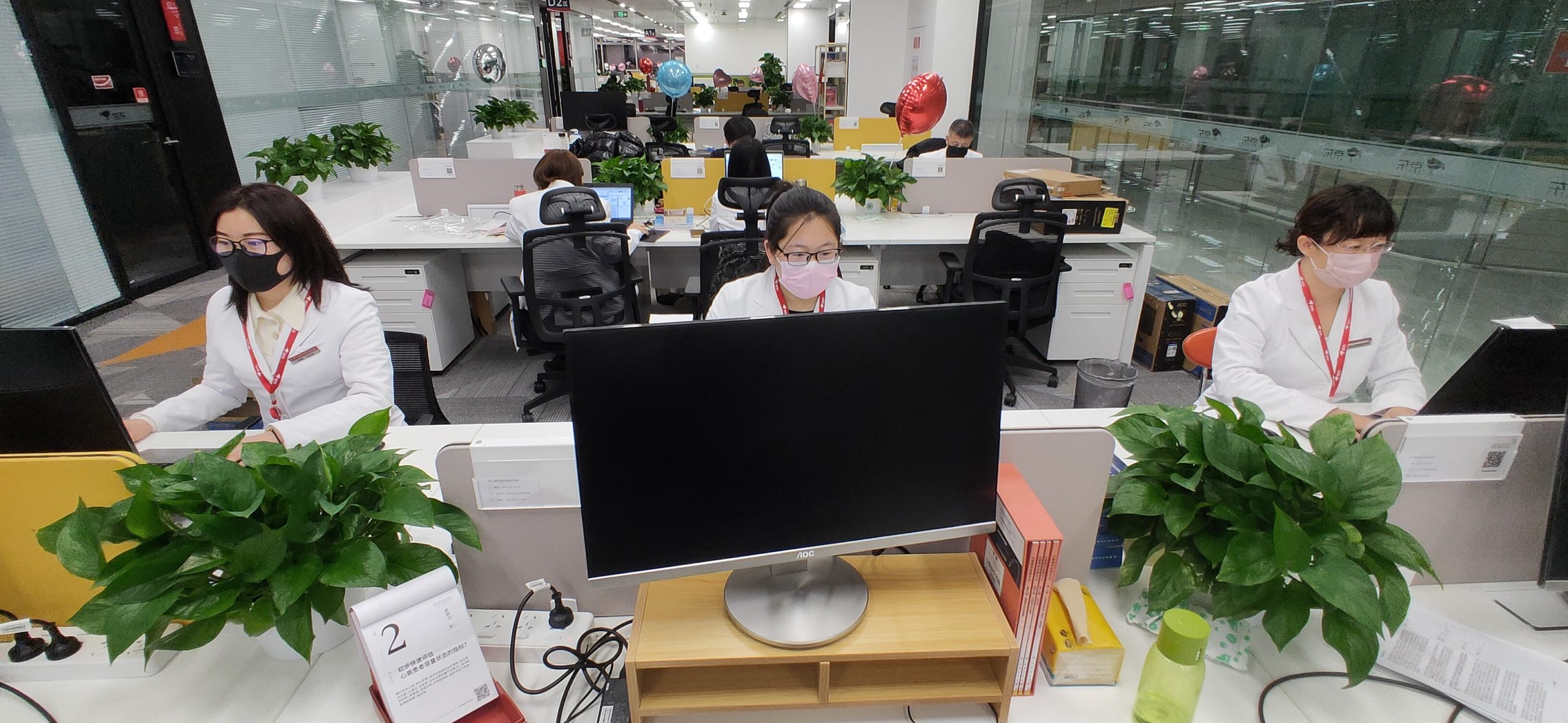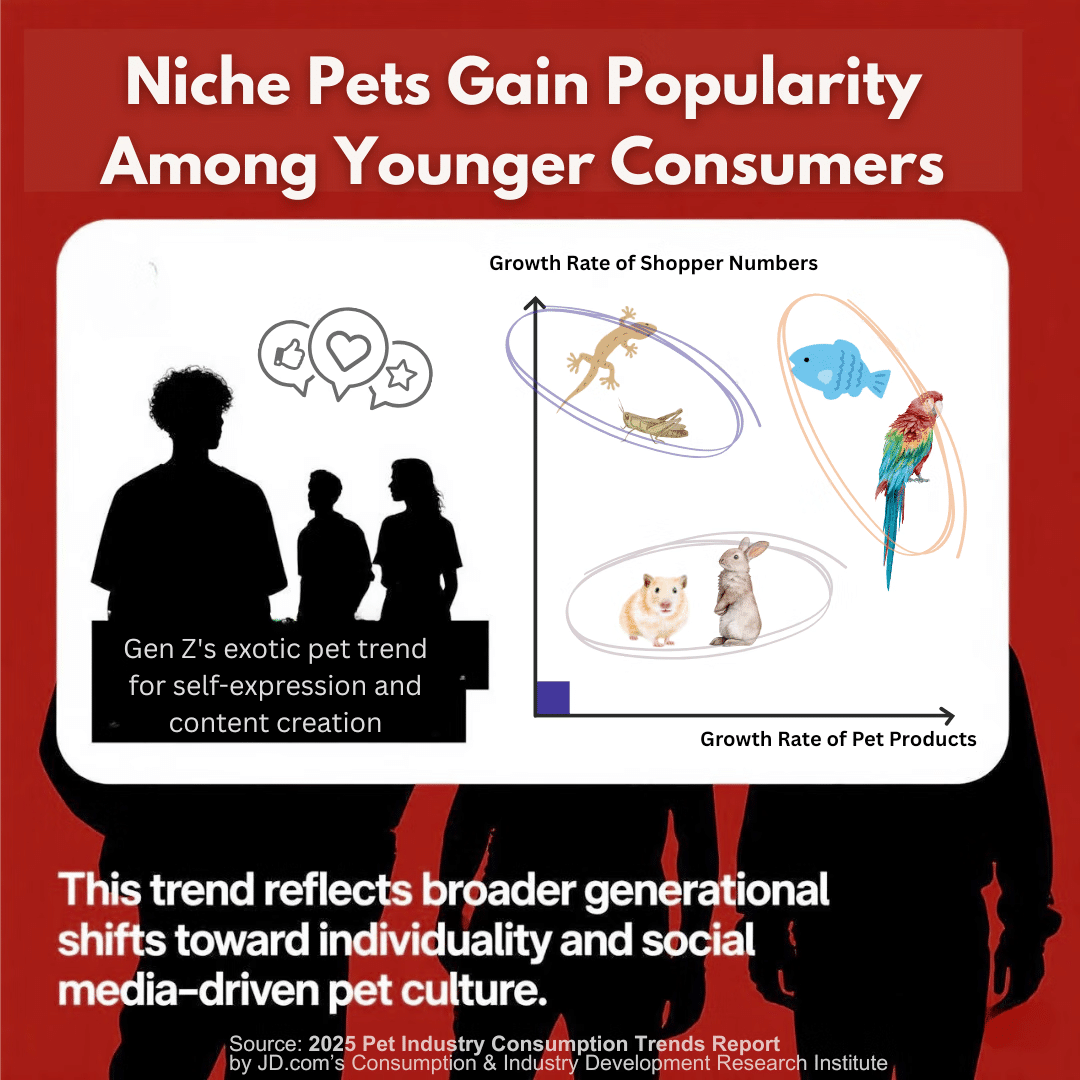Mar 25, 2020|
In-Depth Report: The Logic Behind JD Health’s Today and Tomorrow
by Hui Zhang
JD Health, the third unicorn launched by JD.com (after JD Digits and JD Logistics), is aligning with this service-centric strategy to go deeper and further in providing health care solutions to address unmet needs in the medical community in China.
Richard Liu, Chairman and CEO of JD.com, released an open letter to employees just before Chinese New Year in which he stressed the company’s strategic transformation to become a leading “technology and service company with supply chain at its core.”
A symbol of transforming into a service mindset, JD Health launched its Android and iOS version apps respectively in February and March, offering a more convenient way for patients to access JD Health’s services than limiting engagement through JD’s app. Lijun Xin, CEO of JD Health, said the logic of the health business was still focused upon retail logic before setting up its own app. Now, JD Health is focusing more on services and user satisfaction.

The service logic behind JD Health’s business is designed to cope with challenges faced by not only patients but also hospitals and doctors in China. Patients are facing imbalanced distribution of medical resources, especially those living in remote areas of the country where proper medical care is in dire shortage. Hospitals are facing increasing medical costs due to the influx of an increasing number of patients into hospitals. However, the income of doctors has not significantly improved due to the separation of dispensing from prescription activities. Xin said China’s healthcare industry may be an RMB 10 trillion industry, offering enormous opportunities. JD Health wants to help patients with their health care management, providing more choices rather than going to hospitals just because of common illness or discomfort, while improving doctors’ income. Here’s how JD Health is developing its business to become more service-oriented.
Pharmaceutical E-commerce Business
JD.com entered the health industry by starting a pharmaceutical e-commerce business. It started the business by selling healthcare products online for the first time in 2013, marking an official step into the pharmaceutical retail business. In January 2016, JD Health started a platform for third-party pharmaceutical retail businesses and opened JD Pharmacy, the first-party pharmaceutical business model, the same year. JD Pharmacy, as a core part of JD Health’s B2C business, has become China’s largest pharmaceutical retail platform, online or offline in just three years. Its growth rate is four times higher than the industrial average in China.
In addition to the B2C business, JD Health also started its B2B business by setting up a medicine procurement platform called ‘JD Medicine Procurement’ in 2017 to improve the circulation efficiency of traditional channels and increase information transparency. The platform has been one of China’s key large-scale third-party pharmaceutical wholesale platforms since its establishment, covering 21 provinces and more than 400 cities, with more than 120,000 retail outlets offering more than 600,000 items.
JD.com is able to achieve such a large scale pharmaceutical business thanks to its strong supply chain. Before the establishment of JD Health, JD.com had already integrated the online and offline business by connecting with pharmaceutical enterprises, commercial enterprises, retail enterprises, and medical institutions through its supply chain.
Another growth engine of JD’s pharmaceutical business is its nationwide logistics network, which covers 99% of the population in China, to ensure drug supply provision to people the same day or next day, or even in just 30 minutes. Through cooperation with offline pharmacies, JD developed an omnichannel medicine delivery service to help pharmacies benefit more financially while providing rapid drug delivery services to patients. The service now covers nearly 150 cities in 25 provinces across China, with the delivery of drugs guaranteed within 30 minutes.
Online Healthcare Business
Following successful pharmaceutical business development, JD inevitably sought to integrate medical services with its pharmaceutical business. “If you want to expand vertically into the retail drug business, you must be integrated with hospitals and the medical services they provide,” said Xin.
JD started the Internet hospital business in December 2017, offering mobile phone and text consultations to patients. It has attracted over 30,000 doctors from all over the country to join JD’s Internet hospital, providing patients with professional medical consultation services that were previously difficult for them to access. Sixty-two percent of JD Health’s doctors come from AAA hospitals, and 90% of patients who choose quick online medical inquiry service can get answers within three minutes.
Since the outbreak of COVID-19, JD Health has set up a platform to prevent and fight against COVID-19, providing free online consultation services to consumers with COVID-19 related symptoms, and psychological services to both consumers across the country and frontline medical workers, and then expanded the free consultation to all kind of diseases. From January 26 to now, JD Health online consultation platform has served more than 5 million domestic users, with an average daily consultation volume of more than 120,000. JD Health also launched a free Global Chinese-English bilingual Health Consultation Platform to provide free online consultation and psychological counseling services to people around the world.

One of the critical steps for JD’s fast expansion in the process of building online healthcare services is cooperating well with hospitals. The need for establishing Internet hospitals in fact comes from hospitals themselves. While China is vigorously promoting the separation of medicine prescription and dispensing, which is the right direction to pursue, however, this has resulted in a decrease in income for most doctors and forcing doctors to transform.
This has also led to the transformation of hospitals to build online hospitals to enhance patient loyalty and extend offline services to be provided online. But the real problem is that most public hospitals do not have the ability to build Internet hospitals and lack operational capability. Most of the online health care platforms built by hospitals receive complaints by consumers that both the interface and its functions are too simple to use, and don’t provide comprehensive service to consumers by integrating online and offline.
JD, which has the country’s largest logistics network, and rich frontline experience in e-commerce, expanded cooperation with hospitals to speed up the digitalization of hospitals and improve doctors’ income in an innovative way. Since January 2019, patients in Suqian No.1 People’s Hospital in east China’s Jiangsu province can access online consultation services via a “Smart Clinic” WeChat service account, allowing them to seek the advice of the hospital’s doctors from the comfort of their home. The Smart Clinic, which is developed by JD, can also facilitate insurance payments for the medication in Suqian City.
“We built an Internet hospital for Suqian No.1 People’s Hospital based on our experience establishing JD’s Internet hospital, and it helped expand doctor’s working locations from staying regional to going nationwide,” said Xin.
Developing Intelligent Healthcare
JD Health is also exploring opportunities beyond the online pharmacy model by making its online healthcare “smarter” with artificial intelligence(AI).
AI has been applied broadly as a core component across many of JD Health’s services. JD Health uses AI to advise patients on the most appropriate department to make an appointment based on their symptoms. The function already covers 29 online clinic consulting departments, with accuracy exceeding 95%. The function can now offer services for over 77% of online consultation orders, and reduce labor costs by 50%, according to data from JD.
According to the World Health Organization, over half of all medicines prescribed are either dispensed or sold improperly. JD Health is now working with the leading Third Hospital of Peking University to integrate AI technology into the hospital’s information management system – introduced an advanced, AI-based prescription review and analysis system called PharmCOO (“Pharma chief operating officer”) that optimizes the clinical prescription process and improves patient safety.
The core of the new prescription review system is a knowledge graph based on the Third Hospital of Peking University’s vast database of pharmaceutical knowledge. In the past, pharmacists in China were merely seen as “dispensers” of medication, rather than a source of medical knowledge and guidance. New requirements mean pharmacists must carefully review all prescriptions that doctors prescribe to ensure there are no contradictions between medication, the dosage is correct, and the patient understands how to use each drug.
The advantage of the knowledge graph-based system is that it fulfills the role of a highly attuned and comprehensive expert for pharmacists. Using JD’s advanced natural language processing and deep learning technology, PharmCOO can provide doctors timely reminders on any issues, and consultation on the use of various drugs. It also can draw subtle, intelligent connections between a patient’s condition and potential allergies to medication. Rather than a static database, the knowledge graph-based system is unique in that also constantly learns from the experience of medical professionals, enabling it to improve accuracy, and taking the burden off of pharmacists to memorize troves of medical data so that they can prioritize learning the most pertinent information.
JD Health also opened up its sophisticated e-commerce technology and big data capabilities to pharmacies across China, enabling them to expand their traditional business models and enhance the products and services they offer to consumers. JD Health leverages its smart store technology to provide data-driven recommendations about which products to stock, helping member pharmacies increase sales. Working with JD Health enables pharmacies to expand their inventory to categories such as personal care, beauty, and baby and maternal products, giving customers more reasons to visit the pharmacy for their everyday needs.

JD’s program to partner with offline pharmacies was launched last year in a central Beijing branch of Golden Elephant, a leading pharmacy chain with more than 200 stores across China. Through the program, JD’s big-data technology analyzes information from smart cameras and other sources that help the pharmacy understand information about customer preferences and consumption habits. The pharmacy can use this information to optimize product selection and drive sales by branch.
“JD’s big-data capabilities help us understand customer behavior and preferences in our store in ways that were never before possible,” said Xiao Jun, a spokesperson from Golden Elephant Pharmacy. “With this new information, we can completely reevaluate our store operations. Now we are able to anticipate demand, optimize inventory, increase sales, and acquire new customers.”

Among Chinese technology companies, Alibaba, Tencent, and Baidu entered into the health service industry earlier than JD, and there are great differences in their business exploration paths. In addition to these big tech companies, there are also other vertical companies in the industry. Some claim that JD is a little bit late in starting the business, but there are advantages.
“Starting the business late allows us to see the pattern of the industry and the pain points more clearly,” said Xin.
For future plans, JD Health is targeting the whole healthcare industry and is endeavoring to help JD’s over 360 million consumers in full life cycle health management by always placing consumers’ experience at the center.





 This Harbin tourism boom has also spurred a surge in sales of winter apparel. JD.com’s data indicates a rapid growth in the sales of warm clothing items such as down jackets, snow boots, and thermal underwear between January 1st and 7th. The sales growth is especially pronounced in southern provinces and cities such as Jiangsu, Zhejiang, Guangdong, Sichuan, and Shanghai. Notably, tall snow boots registered a 206% year-on-year increase in transactions, while padded cotton caps and thickened long down jackets soared by 158% and 134%, respectively. Beyond clothing, travel gear has also seen a considerable uptick, with a 98% year-on-year growth in transactions for large suitcases and travel backpacks in these southern regions.
This Harbin tourism boom has also spurred a surge in sales of winter apparel. JD.com’s data indicates a rapid growth in the sales of warm clothing items such as down jackets, snow boots, and thermal underwear between January 1st and 7th. The sales growth is especially pronounced in southern provinces and cities such as Jiangsu, Zhejiang, Guangdong, Sichuan, and Shanghai. Notably, tall snow boots registered a 206% year-on-year increase in transactions, while padded cotton caps and thickened long down jackets soared by 158% and 134%, respectively. Beyond clothing, travel gear has also seen a considerable uptick, with a 98% year-on-year growth in transactions for large suitcases and travel backpacks in these southern regions. In-Depth Report: When Bookstores Meet JD.com
In-Depth Report: When Bookstores Meet JD.com



